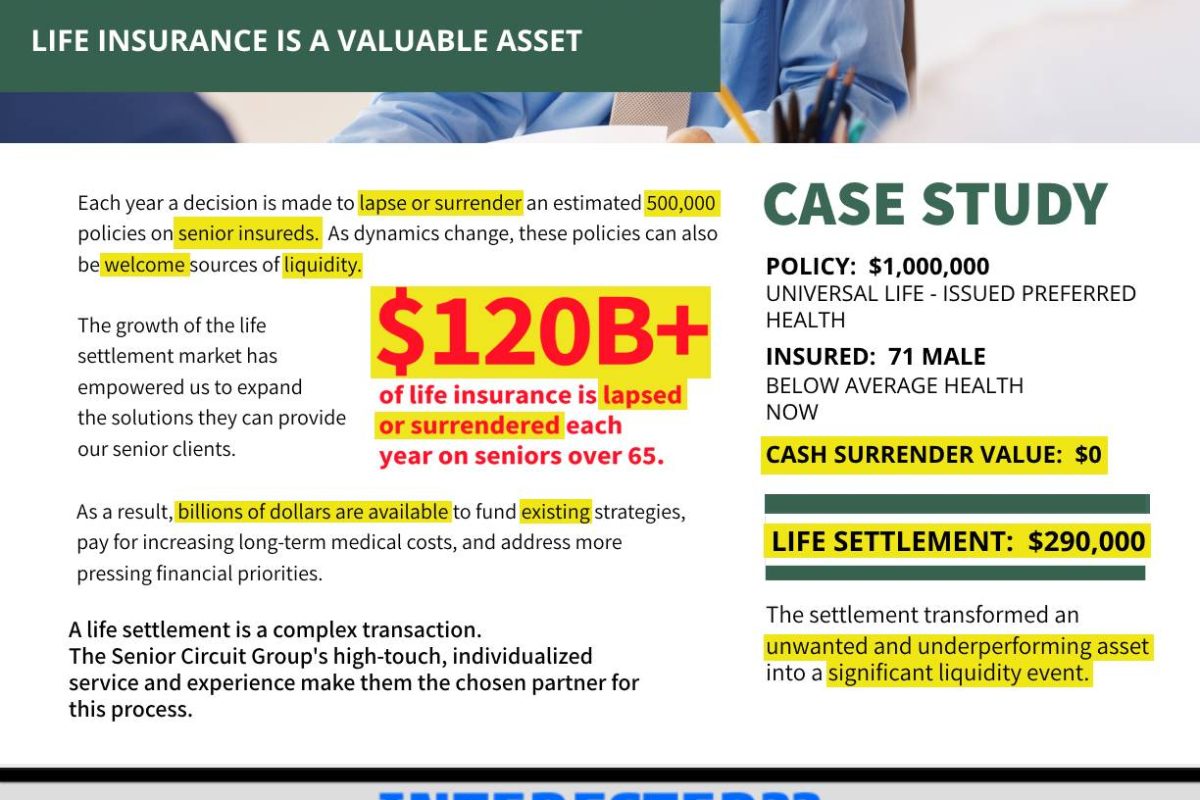Introduction:
Life insurance policies are designed to provide financial protection and peace of mind. However, at certain stages of life, circumstances may change, and policyholders may find themselves in need of immediate funds or facing unaffordable premiums. In such situations, exploring a life settlement can help individuals unlock the hidden value of their life insurance policies and provide a viable solution. In this article, we delve into the world of life settlements, discussing what they entail, who can benefit from them, and the factors to consider.
Understanding Life Settlements:
A life settlement refers to a financial transaction where a policyholder sells their life insurance policy to a third-party investor for an immediate cash payment. This alternative option allows policyholders to monetize their policies and receive a substantial payout instead of surrendering them to the insurance company for a minimal cash value. The purchaser assumes the responsibility of paying future premiums and receives the death benefit upon the insured person’s demise.
Who Can Benefit from Life Settlements:
1. Individuals facing financial challenges: Life settlements provide a lifeline to those in dire need of funds to navigate unexpected financial hardships, pay off debts, or cover medical expenses.
2. Policyholders with unaffordable premiums: Rising premiums can become burdensome as income decreases over time. In such cases, a life settlement can alleviate the financial strain by converting the policy into immediate cash.
3. Retirement planning and downsizing: As retirement approaches, some policyholders may find that their insurance coverage no longer aligns with their financial goals. Converting a policy into cash through a life settlement can provide additional funds for retirement planning or downsizing purposes.
4. Terminal illness or deteriorating health: Unfortunately, life-threatening illnesses can exhaust financial resources. Selling a life insurance policy through a life settlement offers individuals the opportunity to access funds to cover medical costs, seek better treatment, or improve their quality of life.
Factors to Consider:
Before proceeding with a life settlement, it’s crucial to evaluate various factors:
1. Policy eligibility: Not all policies are eligible for a life settlement. Generally, policies with a face value of $100,000 or more are more attractive to investors.
2. Age and health of the insured: The older the insured person, the higher the potential payout. Additionally, individuals with certain health conditions may receive more favorable offers due to potentially shortened life expectancies.
3. Current policy value and premiums: The cash surrender value of a policy, along with the expected future premium payments, affects the potential payout amount offered in a life settlement.
4. Tax and legal implications: Consultation with financial advisors and legal professionals is essential to understand the tax consequences and any potential legal considerations associated with a life settlement.
Conclusion:
A life settlement can be a viable option for individuals seeking immediate financial relief or looking to extract value from an underutilized or unaffordable life insurance policy. By understanding the concept of life settlements, evaluating personal circumstances, and seeking professional guidance, individuals can make informed decisions and explore this alternative path to obtain liquidity when needed. Remember, every situation is unique, so thorough research and expert advice are critical to assess the suitability of a life settlement for individual needs and goals.
A Life settlement broker is an individual or a firm that acts as an intermediary between a policy owner looking to sell their life insurance policy and potential buyers such as life settlement providers or institutional investors. They help policyholders navigate the process of selling their policy, ensuring that they receive the best possible value.








